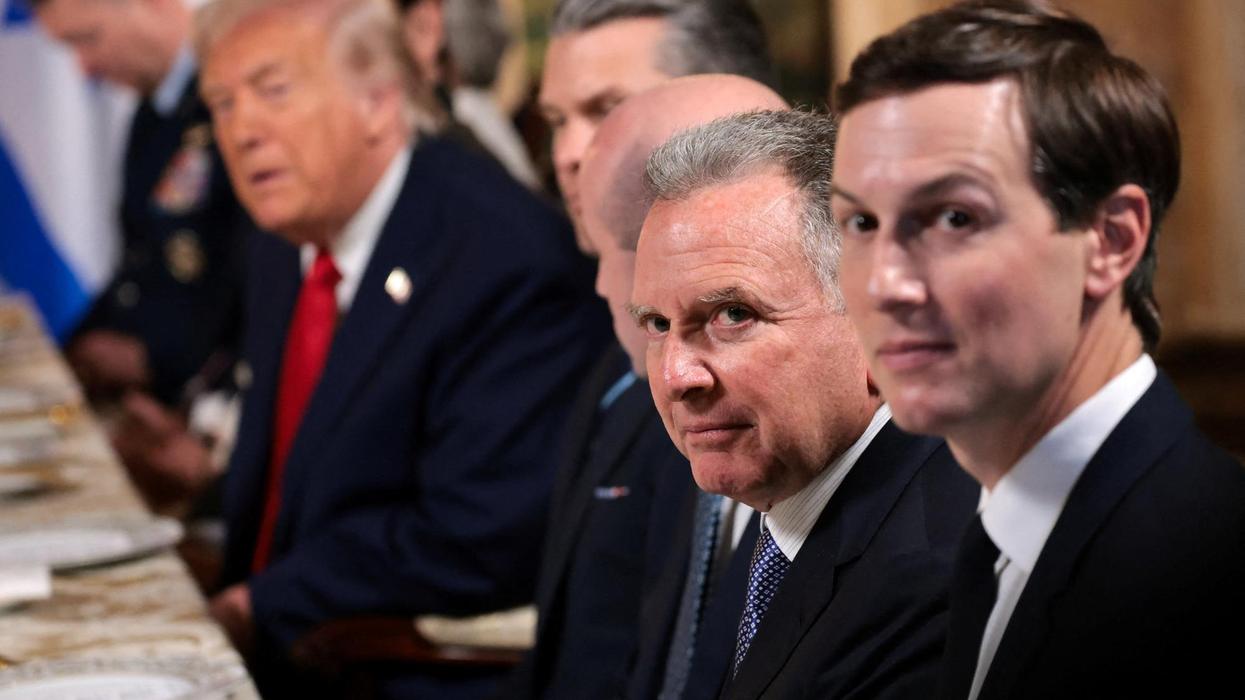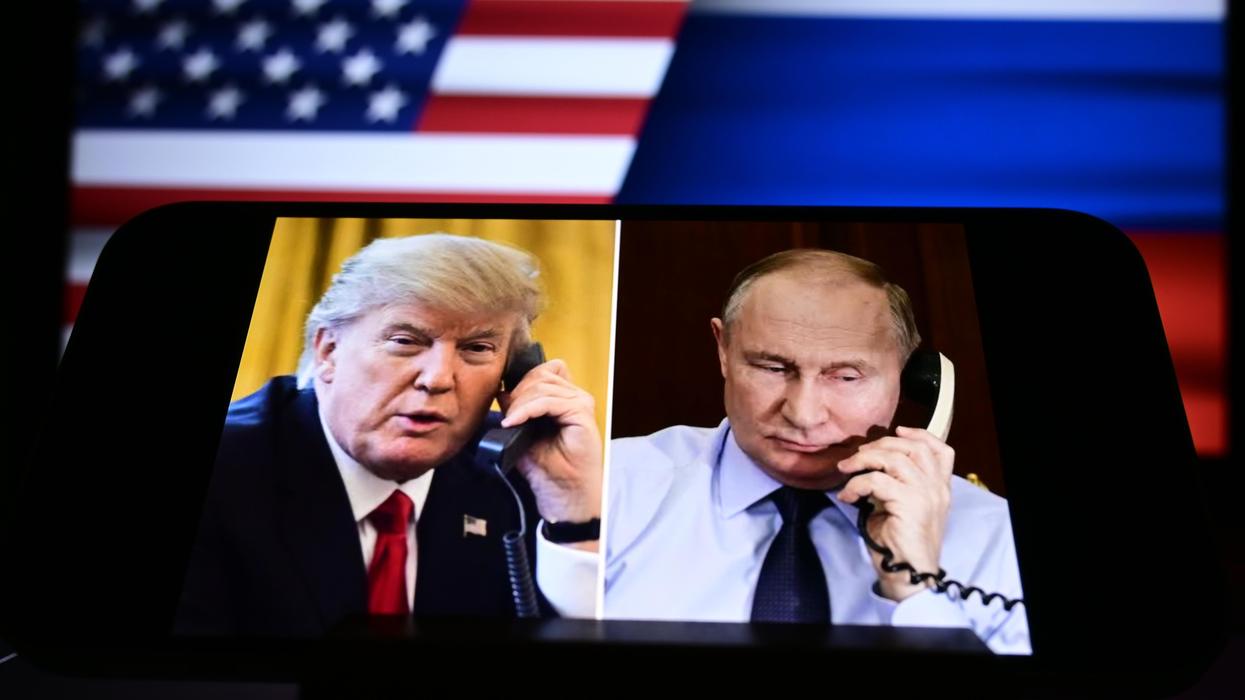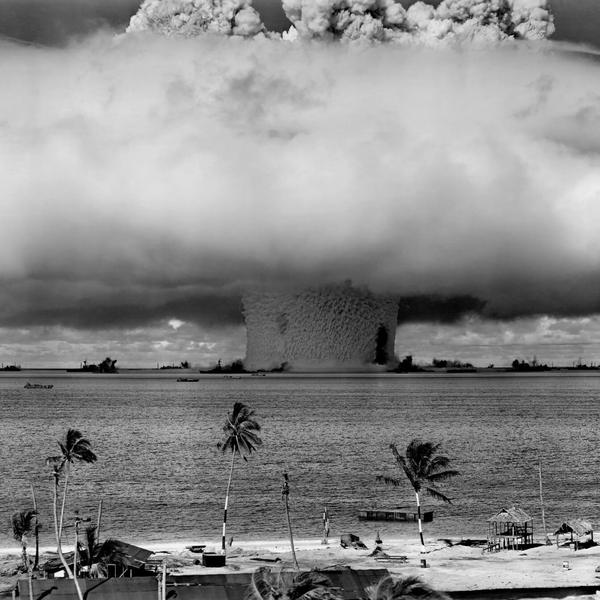With protests flaring up around the country over a hike in fuel prices, the atmosphere in Iran is febrile. At the same time, it is eerily quiet with the near-total internet shutdown cutting the country off from the rest of the world. The disarray of the current situation has led to a flurry of speculation. On the Iranian side, Supreme Leader Ali Khamenei blamed the violence in the protests on thugs, subversive elements and agitators from abroad, while President Hassan Rouhani declared that street unrest had been put down in a “victory” over “foreign enemies.”
With unbridled optimism, U.S. Secretary of State, Mike Pompeo attributed the demonstrations to the effectiveness of President Donald Trump's “maximum pressure campaign," signaling that Iran was inching closer to fulfilling his illusionary aspirations of regime change. "The United States is with you," he tweeted to the Iranian people, who have become not just "collateral damage," but direct victims of Trump's economic war against Iran. Grappling with economic hardship, Iranians have been cut off from basic necessities including access to life-saving medicines. In a perverse twist of logic, the hope is that human suffering will lead the Iranian people to rise up, and somehow affect change in the regime's behavior.
U.S. Special Advisor on Iran Brian Hook reiterated the Trump administration's fetish for sanctions: "We think that our sanctions have expanded the space for the Iranian people to demand a more accountable representative government." There have been more than 100 deaths in the course of a week of protests, and meanwhile, Hook continues to talk of political transformation with his characteristic political tactlessness. What the U.S. has not yet learned is that bloodshed and misery do not beget democracy. In fact, since President Trump's investiture, Iranian hopes for political dynamism have been entirely obfuscated under the back-breaking weight of sanctions.
The title of a recent article in the Atlantic, "Iran Protests: Something's Got to Give," reveals a lot about the current predicament. It encapsulates the U.S. administration's frustration over the Iranian regime's durability in the face of "maximum pressure." At the same time, it is an acknowledgment of the failure of the Trump administration's Iran policy, which is really a chaotic and messy, hit-and-miss strategy along the lines of, “something's got to give."
Iran has weathered many storms over its 40-year lifespan. It is no stranger to intense domestic challenges, like for example the widespread 2009 protests disputing the presidential election results, and the December 2017-January 2018 nationwide protests over economic mismanagement. In all likelihood, Iran will ride out this current storm as tempestuous as it may be. While the "maximum pressure" campaign has inflicted damage, it has not brought the country any closer to regime collapse. In fact, the general academic consensus is that there is little probability of regime overthrow, and even less probability of military intervention, made patently clear by Trump's toing and froing during the tanker/drone crisis this summer, along with his general opposition to "endless wars" in the Middle East.
Burdened by forty years of stasis, U.S.-Iran relations have become even more deeply entrenched in no-man's-land in which there is neither full-scale war nor any prospect for détente or rapprochement. With neither a thaw nor a war on the horizon, what are the prospects for steering the two countries away from having gone hopelessly adrift? Indeed, something has got to give. To begin with, a fundamental paradigmatic shift needs to take place.
The axiological foundation of the U.S. approach to Iran has been premised on the wholesale rejection of the post-revolutionary Iranian regime, the political system, and its governing principles. This perspective is based on the logic of conflict and geo-ideological contestation, which has dictated U.S.-Iran relations since 1979. The standard view is that Iran is an authoritarian regime seeking to export its messianic-revolutionary theocratic model throughout the region through hybrid warfare and unconventional forces and proxies, by fostering an "alliances of autocracies" with other “spoilers" like Russia, and by propping up of dictators in the neighborhood.
In this narrative, Tehran's revisionist policies are ultimately attributed to the psychology of resentment toward the Western way of life in general, and to European and Anglo-American liberalism in particular. This misconception has elsewhere, in the past, underwritten "humanitarian" military interventions, and civilizational tutelage in the form "democracy-promotion."
An alternative approach to mitigating the U.S.-Iran standoff is emphasis on the civilizational approach in fostering a pluralistic outlook in international relations. This approach places an emphasis on the interplay of historical, cultural, and ideational dynamics in shaping foreign policy culture. It is a perspective that engenders a pluralistic vision of the international system, while strongly rejecting programmatic attempts to transfer normative political models and ideologies as a framework for relations between states.
Iran associates the prevailing modalities of the international order and the universalistic normative values of democracy with regime destabilization efforts. Hence, we can link up the goal of regime survival to Iran's regional activism. This perspective also explains Iran's sovereignty-centered view of international politics, and its denunciation of what Russia's foreign intelligence chief, Sergey Naryshkin, has referred to as the U.S.” "universal algorithm" for conducting clandestine influence operations… designed to weaken countries like viruses weaken bodies and to dispose of governments that the West does not like."
Pluralism in the international system is based on the idea of cultural diversity, different "civilizational" paths, and a rejection of ideological homogeneity. It is founded on the belief that each state or political model has to resolve its own challenges, and that historical experience cannot be transplanted from one context to another. This approach is based on repudiation of the notion that the historical experience of one set of states can act as universal models to all others—what Edward Tiryakin has described as the "western delusion" that there is "a model of development exportable, applicable everywhere, and superior morally and technically to all other forms of societal development."
Put simply, pluralism is achieved through recognition of diverse developmental paths with distinctive security and civilizational complexes. This is a pluralism of procedure (where diverse world orders can relate to international society autonomously, and not necessarily through alignment with the liberal internationalist order), rather than a pluralism based on substantive normative differences.
The U.S.-Iran impasse is a symptom of the failure to establish pluralism in the international order, which has locked the U.S. and Iran in a permanent state of conflict. If the U.S. accepts the idea of civilizational diversity by making way for pluralism in the international system, it may be closer to breaking out of the 40-year stalemate with Iran. If the Iranian regime's fear of the covert transfer of norms and institutions through regime change or military confrontation is mitigated, Tehran may find itself on a more stable footing on which to interact regionally. With fears of regime overthrow neutralized, Tehran may be more willing to scale back or to jettison its support for regional proxies, and to curb development of its missile defense programs—two major points of contention.
However, in order for this prospect to materialize, the U.S. would have to foster pluralism in the international system by accepting eclectic political paradigms. This entails accepting Iran's political configuration and working on convergence strategies. This is a conceptual blank canvass that is sure to be a more promising and more sophisticated strategy than the wait-and-see, “something's got to give" approach.
This article originally appeared on LobeLog.com.
















